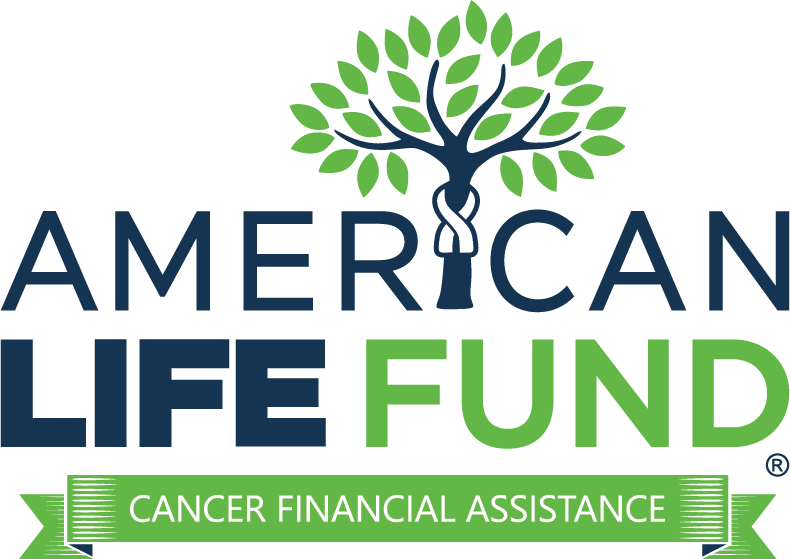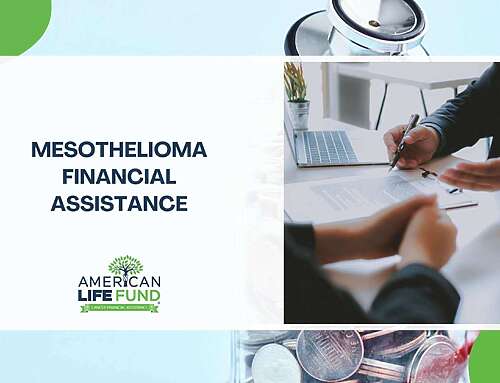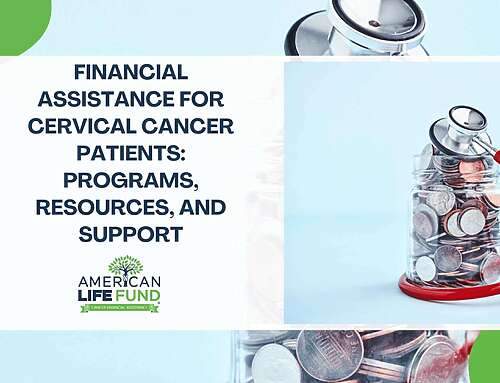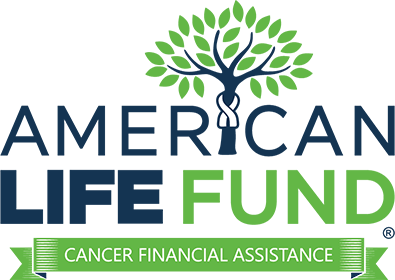If you’re facing stomach cancer, financial assistance is available. Organizations like the Gastric Cancer Foundation and the American Cancer Society can help cover medical and living expenses. Government programs such as Medicaid and Social Security Disability Insurance (SSDI) offer additional support. Don’t navigate this journey alone—local health departments, non-profits, and your healthcare team can guide you to the right resources. Reach out today to find assistance programs and focus on your recovery.
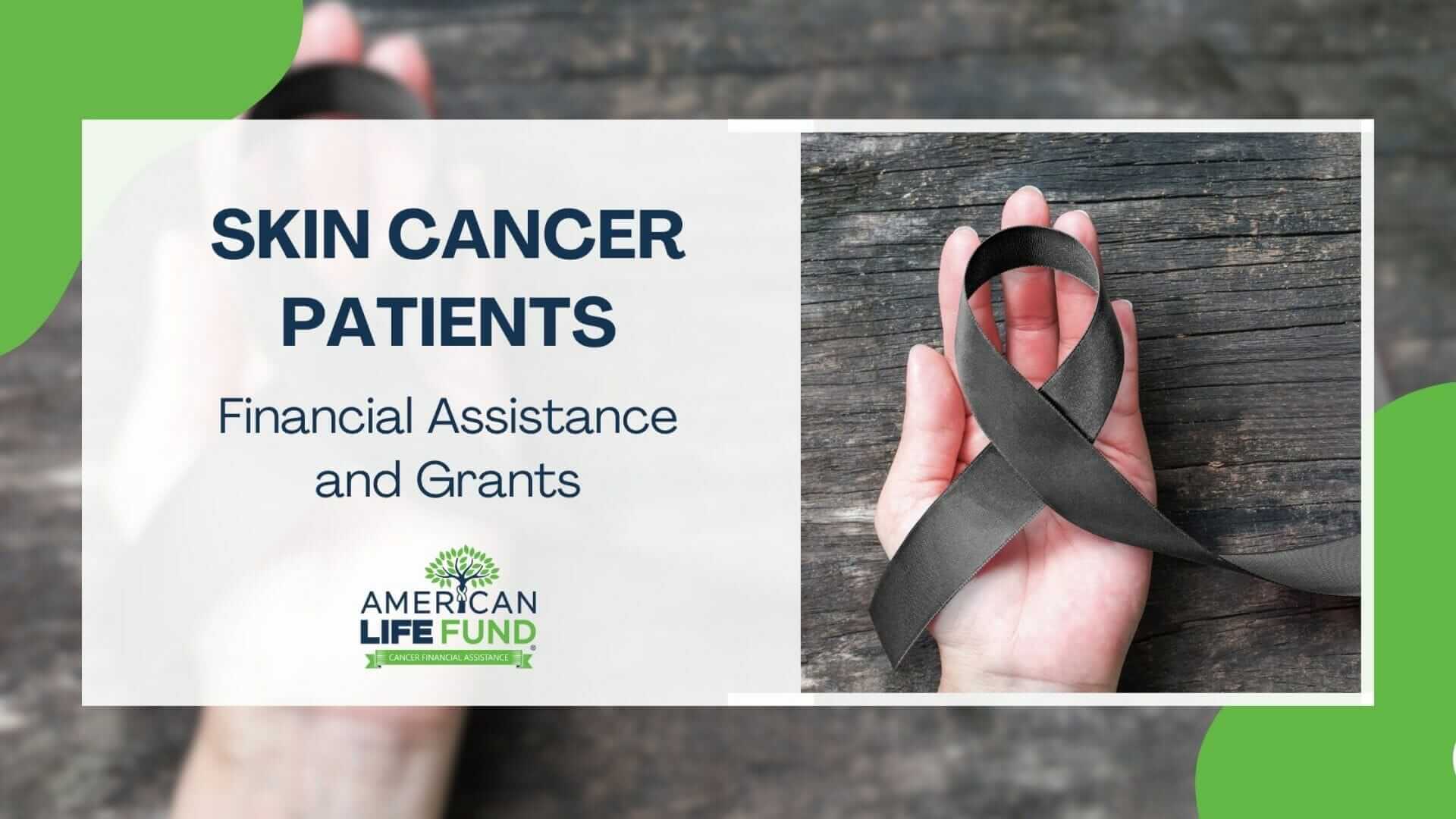
How To Find Financial Assistance For Skin Cancer Patients
Locating and applying for financial support as a skin cancer patient involves several steps, but with the right guidance, it can be manageable.
The first step is to understand the various types of assistance available. This includes health insurance coverage options, pharmaceutical patient assistance programs for medication costs, and financial assistance resources from non-profit organizations and government programs.
The following is our breakdown of different financial assistance available for patients with a skin cancer diagnosis:
Skin Cancer-Specific Financial Grants From Organizations
Several organizations offer specific grants and financial aid programs to support skin cancer patients. Here are some notable ones:
- The Skin Cancer Foundation: This foundation provides grants for various initiatives, including patient support and research. They periodically offer patient assistance grants designed to help individuals undergoing treatment for skin cancer with their financial needs.
- AIM at Melanoma Research Foundation: This foundation focuses on melanoma, the most serious type of skin cancer. It offers resources and support and has a range of programs that assist, including financial aid for those who need help with treatment costs.
- Melanoma Research Alliance: As the largest private funder of melanoma research, this alliance occasionally offers grants and aid for patients, focusing on advancing research and treatment options.
- CancerCare: Providing free, professional support services, CancerCare offers limited financial assistance to individuals affected by cancer, including skin cancer. Their grants can be used for transportation, home care, child care, and pain medication.
- The Patient Advocate Foundation’s Melanoma CareLine: Specifically tailored for melanoma patients, this program offers financial aid and case management services to patients, helping them address insurance-related and financial challenges.
- The Assistance Fund (TAF): This organization financially supports patients with serious and chronic diseases, including skin cancer. They offer help with copays, health insurance premiums, and other out-of-pocket health care costs.
- HealthWell Foundation: They offer a Melanoma Fund to provide financial assistance to eligible patients undergoing melanoma treatment. This can include help with prescription copays, health insurance premiums, and travel costs related to treatment.
- Lazarex Cancer Foundation: This foundation assists advanced-stage cancer patients, including skin cancer patients, in accessing potentially life-saving treatment through FDA clinical trials. They offer assistance with out-of-pocket expenses for clinical trial participation.
These organizations recognize the financial burden that skin cancer can place on patients and their families. The grants and programs they offer aim to relieve some of this stress, allowing patients to focus more on their treatment and recovery.
Patients or their caregivers should contact these organizations directly to understand the current availability of funds, eligibility criteria, and application processes.
Government Financial Assistance Programs
Several government programs at both the federal and state levels provide financial assistance to skin cancer patients. These programs help with medical expenses, prescriptions, and other health-related needs. Here are a few specific examples:
- Medicare: For skin cancer patients 65 years or older or with certain disability requirements, Medicare can provide significant help. The program covers various aspects of cancer treatment, including hospital stays, outpatient treatment, and prescription drugs under different parts (Parts A, B, D).
- Medicaid: This state and federally-funded program assists low-income individuals and families with healthcare costs. Eligibility and benefits vary by state, but Medicaid covers many services, including cancer treatment-related expenses such as doctor visits, hospital care, and medical equipment.
- Social Security Disability Insurance (SSDI): For skin cancer patients who cannot work due to their condition, SSDI provides financial assistance. Qualification depends on the severity of the cancer and its impact on the patient’s ability to work.
- Supplemental Security Income (SSI): This program offers financial help to disabled, blind, or elderly individuals with limited income and assets. Skin cancer patients who have financial need may qualify for SSI benefits.
- State-Specific Cancer Assistance Programs: Many states offer cancer assistance programs that provide financial aid for treatment, medications, and other related expenses. The California Breast and Cervical Cancer Treatment Program (BCCTP), which offers services to eligible individuals, can be a model for similar programs in other states for skin cancer.
- The Children’s Health Insurance Program (CHIP): For families with children who have skin cancer and do not qualify for Medicaid, CHIP provides low-cost health coverage that includes services necessary for cancer treatment.
- The National Breast and Cervical Cancer Early Detection Program (NBCCEDP): While primarily focused on breast and cervical cancer, this program can serve as a reference point for similar initiatives or guide available resources for skin cancer screenings and treatment in some states.
Patients should consult with a social worker or a healthcare navigator to understand which of these programs they might be eligible for and to get assistance with the application process. Additionally, it’s important to check with state health departments for more localized financial assistance options specific to skin cancer care.
Housing Financial Assistance
Housing financial assistance for skin cancer patients can significantly alleviate the stress associated with housing costs during treatment. Here are some specific examples of programs and resources that offer support for mortgage payments, rent payments, and lodging assistance during treatment:
Mortgage Payments
Housing and Urban Development (HUD) Programs: HUD offers various assistance programs, including those that help with mortgage payments or rent. For instance, the HUD’s Homeowner’s HOPE Hotline assists homeowners in managing their mortgage payments. The Section 8 program may also help eligible low-income individuals, including cancer patients, with rent payments.
Rent Payments
CancerCare’s Financial Assistance Program: CancerCare provides limited financial assistance to cancer patients. For skin cancer patients struggling with rent or mortgage payments due to their treatment, this program can offer some relief.
Accommodation During Skin Cancer Treatment
Joe’s House: This non-profit organization provides a comprehensive online directory of places to stay near cancer treatment centers across the country. Joe’s House partners with hotels and other lodging facilities to provide accommodations at reduced rates or free of charge.
The Healthcare Hospitality Network (HHN): HHN is a nationwide professional association of organizations that provide family-centered lodging and support services to patients receiving medical treatment far from their homes. For skin cancer patients who need to travel for treatment, HHN affiliates offer significantly reduced-cost or free accommodations.
Each of these programs has specific eligibility criteria and application processes. Skin cancer patients or their caregivers are encouraged to contact these organizations directly for more detailed information and to determine how they can benefit from these housing assistance options.
Utility Assistance
Here are two examples of programs that provide utility assistance, helping skin cancer patients with costs like electricity, water, and other utilities:
- The Low Income Home Energy Assistance Program (LIHEAP): Administered by the U.S. Department of Health and Human Services, LIHEAP assists low-income households with heating and cooling energy costs, bill payment assistance, energy crisis assistance, weatherization, and energy-related home repairs. Skin cancer patients facing financial hardship may qualify for this program to help manage their utility bills.
- The Salvation Army’s Utility Assistance Program: The Salvation Army offers utility assistance to those in need through its local chapters. These programs help skin cancer patients struggling with utility bills, especially when medical expenses make it difficult to meet monthly payments. Eligibility and the extent of assistance vary by location.
Patients should contact these programs to learn about eligibility requirements and the application process. Local social service agencies or a hospital’s social work department can also provide information on additional regional or local programs offering utility assistance.
Transportation Assistance
Transportation assistance programs are important for skin cancer patients, helping ease the burden of travel costs related to treatments at medical centers nationwide.
Free Gas Cards
- Gas Card Programs by Cancer Organizations: Many cancer support organizations offer gas cards to help patients travel to treatments.
- The American Cancer Society’s Road To Recovery Program Provides gas cards and transportation assistance for patients traveling to appointments.
Air Travel For Cancer Treatment
- Angel Flight: This organization offers free air transportation for medical treatment for needy patients, including those with skin cancer.
- Corporate Angel Network: Provides free air travel to treatment centers using empty seats in corporate jets.
Financial Assistance For Child And Elder Care
Skin cancer affects individuals of all ages, and for those with young families or elderly dependents, managing care responsibilities while undergoing treatment can be especially challenging.
- CancerCare’s Child and Elder Care Assistance: CancerCare offers limited financial assistance for home care, and child care to skin cancer patients, acknowledging the unique challenges faced by those responsible for caring for children or elderly family members.
- The National Cancer Institute’s Respite Care Program Provides temporary relief to those caring for family members with cancer, including skin cancer, helping to ease the emotional and financial strain on families with dependents of varying ages.
Prescription & Treatment Assistance
The cost of medication and treatment for skin cancer can be substantial. Programs offering prescription and treatment assistance can help alleviate this financial burden.
- The Patient Access Network (PAN) Foundation: Offers financial support to cover the cost of medications for skin cancer patients, ensuring that treatments are accessible regardless of the patient’s financial situation.
- The HealthWell Foundation: Provides financial assistance to cover out-of-pocket medication costs for skin cancer patients, helping them afford the essential treatments they need for their recovery and well-being.
Low-Cost And Free Screenings
Early skin cancer diagnoses through screenings are crucial, and programs offer affordable options, ensuring everyone has access to these potentially life-saving services.
- The American Academy of Dermatology’s SPOTme® Skin Cancer Screening Program offers free screenings by volunteer dermatologists nationwide, catering to people who might not otherwise have access to dermatological care.
- Local Health Departments and Community Clinics: Many local health departments and community clinics across the United States offer low-cost or free skin cancer screenings, particularly during May, which is Skin Cancer Awareness Month.
Clinical Trials
For participants, clinical trials can provide access to new treatments that are not yet widely available and sometimes also offer financial benefits to cover costs associated with the trial.
- The National Cancer Institute’s Clinical Trials for Melanoma: Skin cancer patients can explore trials specifically for melanoma, a type of skin cancer, conducted by the National Cancer Institute. These trials test new treatments, drugs, or combinations, allowing patients to access innovative therapies. Participants can benefit from close monitoring by healthcare professionals and potentially help contribute to medical research that could benefit future patients.
Patients interested in participating in clinical trials should consult with their healthcare provider to understand the potential benefits and risks and find a trial appropriate for their specific condition and treatment goals.
Health Insurance
Understanding and utilizing health insurance for skin cancer treatment is a critical step. The Health Insurance Marketplace under the Affordable Care Act provides options for patients who may not have access to employer-sponsored insurance, offering various plans that cover essential health benefits, including cancer treatment.
Healthcare Assistance Programs
Numerous healthcare assistance programs are designed to support patients with additional care needs. A notable example is The Patient Advocate Foundation, which provides case management services and financial aid to patients, assisting them with issues related to health care, including insurance, job retention, and debt crisis matters.
Life Insurance
Life Settlements
Life settlements involve selling a life insurance policy for immediate cash needs, which can benefit skin cancer patients needing to fund their treatment.
Viatical Settlements with American Life Fund
For those with more advanced skin cancer, American Life Fund offers viatical settlements, which allow patients to access a portion of their life insurance policy’s value. This vital financial resource allows patients to cover medical and living expenses during their treatment journey.
Fundraising And Crowdsourcing
Engaging in fundraising and crowdsourcing is an effective way to gather financial support for skin cancer treatment, especially when traditional resources might not fully cover all expenses. Support groups and local resources often provide valuable advice and assistance in setting up these campaigns.
- GoFundMe: As a widely recognized crowdfunding platform, GoFundMe allows skin cancer patients to create personal fundraising campaigns. By sharing their stories, patients connect with a broader community, including support groups and local networks, to gather financial support for medical and living expenses during treatment.
- GiveForward: This platform is designed specifically for medical fundraising, providing a space for patients to raise money for treatment costs. GiveForward also integrates a strong community aspect, enabling patients to connect easily with support groups and find local resources to contribute to their campaigns.
Personal Expenses
Dealing with personal expenses while undergoing skin cancer treatment can be challenging for many patients, as the focus is often on medical costs, overlooking the day-to-day financial needs. However, there are programs specifically designed to assist with these personal expenses, ensuring that patients can maintain a degree of normalcy in their lives during treatment.
- The Cancer Financial Assistance Coalition (CFAC): This alliance helps cancer patients manage their financial challenges by providing direct financial assistance and guidance for managing personal expenses like groceries, child care, and transportation.
- The Leukemia & Lymphoma Society’s Patient Financial Assistance Program: Despite its primary focus on blood cancers, it offers support that can apply to skin cancer patients. This program provides limited financial assistance for non-medical expenses related to cancer treatment.
College Scholarships
Scholarship opportunities exist specifically for skin cancer patients and survivors, offering financial support to continue their education and pursue academic goals despite the challenges posed by their medical journey.
- The Ulman Foundation’s Cancer Survivor Scholarship: This scholarship is awarded to individuals affected by cancer, including skin cancer, either personally or through a family member. It aims to support the educational pursuits of young adults impacted by cancer.
- The National Collegiate Cancer Foundation’s Survivor Scholarship: This program provides financial assistance to young adult cancer survivors, including those battling skin cancer. It is designed to help survivors pursuing higher education, recognizing the financial burden that cancer treatment can place on these aspirations.
Financial Expectations For Skin Cancer Patients
Understanding the potential financial challenges following a skin cancer diagnosis is an important part of the treatment journey. Patients should anticipate various expenses, including those for medical treatments like surgery, chemotherapy, or radiation, which can accumulate quickly.
Beyond direct medical costs, additional financial considerations include travel expenses for treatment, loss of income due to time off work, and potential changes in health insurance coverage. It’s also important to factor in out-of-pocket costs for prescription medications and any follow-up care or ongoing treatments.
Understanding these financial implications early on allows patients and their families to plan more effectively. Seeking advice from financial counselors or patient navigators can be beneficial in managing these expenses and exploring available financial assistance programs.
By having a clear picture of the expected costs, patients can better prepare for the financial aspect of their cancer journey, reducing stress and allowing them to focus more on their health and recovery.
Who To Contact For Skin Cancer Financial Assistance
Knowing who to contact can provide crucial support and guidance for skin cancer patients seeking financial assistance. Here are key contact points:
- Oncology Social Workers
- Local Cancer Support Groups
- The American Cancer Society
- Skin Cancer Foundation
- Patient Advocate Foundation
- State Health Departments
These contacts serve as vital starting points for patients and families navigating the financial aspects of skin cancer treatment.
What Benefits Are Skin Cancer Patients Entitled To?
Skin cancer patients can access various benefits designed to support them through their treatment journey. Here’s a simplified overview:
- Health Insurance Coverage
- Disability Benefits
- Family and Medical Leave Act (FMLA)
- State-Specific Cancer Programs
- Medicare and Medicaid
- Veterans Benefits
These benefits can significantly alleviate skin cancer patients’ financial and logistical pressures, allowing them to focus more on their health and recovery.
Are There Any Free Items Or Gift Boxes For Skin Cancer Patients?
Several organizations offer free items or care packages specifically made for skin cancer patients, providing comfort and support during their treatment.
These can include skincare products suitable for sensitive skin, informational books, inspirational items, and sometimes personalized gifts to uplift spirits. Examples include:
- CancerCare Comfort Kits: Provided by CancerCare, these kits contain information and comfort items for those undergoing cancer treatment.
- Skin Cancer Foundation’s Patient Kits: These kits often include educational materials, skincare products, and other support for skin cancer patients.
Does Skin Cancer Qualify For Disability?
Patients with stage 4 skin cancer may qualify for disability benefits. The key points to understand are:
- Social Security Disability Insurance (SSDI): Stage 4 skin cancer patients often meet the criteria for SSDI.
- Medical Documentation: Submitting medical documentation is essential to prove the severity of the condition and its impact on the patient’s ability to work.
- Application Process: Consigning medical records and other necessary documents to the Social Security Administration.
Disability Rights for Patients with Advanced Skin Cancer
Patients with advanced skin cancer who qualify for disability benefits are entitled to certain rights and protections under various laws and programs:
- Income Support: Through programs like Social Security Disability Insurance (SSDI), eligible patients receive financial support to help compensate for their inability to work.
- Access to Medicare or Medicaid: Qualifying for disability often grants eligibility for Medicare or Medicaid, which provides essential health coverage.
- Job Protection: Under the Americans with Disabilities Act (ADA), employers must provide reasonable accommodations for employees with disabilities, including flexible scheduling for medical treatments.
- Family and Medical Leave Act (FMLA): Allows eligible employees to take unpaid, job-protected leave for serious health conditions, ensuring they can’t be terminated for taking necessary time off for medical reasons.
- Protection Against Discrimination: The ADA prohibits discrimination against individuals with disabilities, including employment, transportation, public accommodations, communications, and access to state and local government programs and services.
- Housing Rights: The Fair Housing Act protects individuals with disabilities from housing discrimination and provides reasonable accommodations in their living arrangements.
Understanding and using these rights can significantly help skin cancer patients manage the challenges posed by their condition, particularly in maintaining financial stability and accessing necessary health care and accommodations.
